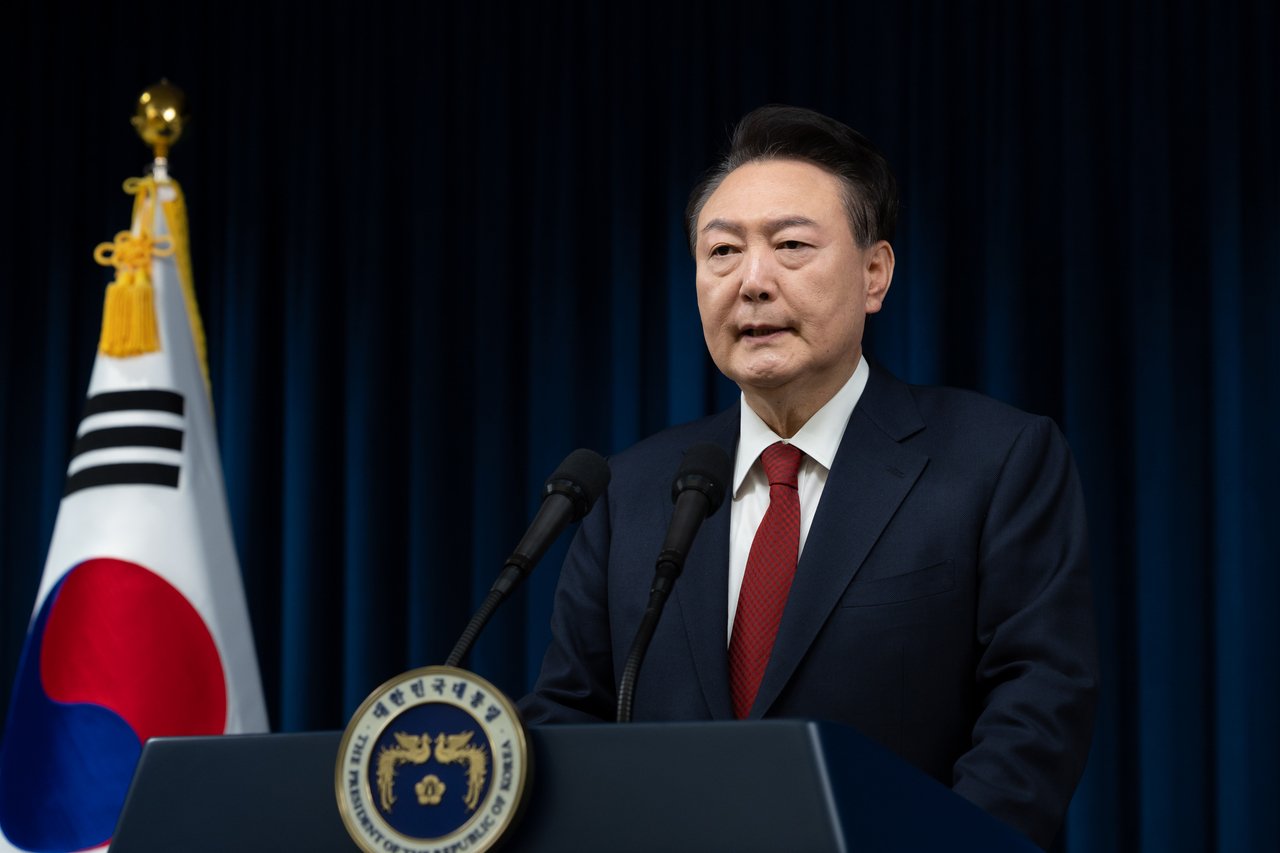South Korea’s Impeached President Yoon Suk Yeol Detained Amid Political and Legal Turmoil
President Yoon Suk Yeol delivering a speech on Dec. 7. (Presidential office)
Executive Summary
South Korea’s impeached President Yoon Suk Yeol has been detained following his controversial declaration of martial law in December 2024. Yoon, the first sitting South Korean leader to be arrested, faces charges of insurrection, a non-immunized offense under South Korean law. His arrest follows weeks of tension, with significant security deployments to execute the warrant, marking a pivotal moment in the country’s political crisis. The situation has also drawn international attention, with speculation over China exploiting South Korea’s political turmoil to advance territorial claims in disputed waters.
Analysis
President Yoon Suk Yeol’s arrest underscores a deep political crisis stemming from his brief and widely condemned declaration of martial law on December 3, 2024. Yoon cited threats from “North Korean communist forces” and “anti-state” elements as justification for the decree, which was swiftly overturned by parliament. His subsequent impeachment on December 14 led to his suspension from office, but Yoon resisted multiple summons for questioning, escalating tensions with law enforcement.
The detention operation on January 15 involved over 3,000 officers and saw Yoon escorted to the anti-corruption agency after weeks of defiance. Yoon’s declaration of martial law and subsequent impeachment have drawn comparisons to “self-coup” tactics, raising concerns about the resilience of South Korea’s democracy. Critics argue the country’s institutional framework was inadequate to prevent such a crisis but has proven robust in reacting to it.
Amid South Korea’s internal strife, China appears to be exploiting the situation by constructing a large floating structure in disputed waters of the West Sea, contravening a bilateral agreement. Analysts suggest the move aligns with Beijing’s pattern of incremental territorial expansion seen in the South China Sea. The timing, coinciding with South Korea’s political instability, has raised concerns about broader regional implications.
Yoon’s detention and the upcoming Constitutional Court ruling, which will determine whether he is formally removed or reinstated, are pivotal. Meanwhile, South Korea’s strained political climate, combined with external pressures from North Korea and China, poses significant challenges to its governance and sovereignty.
